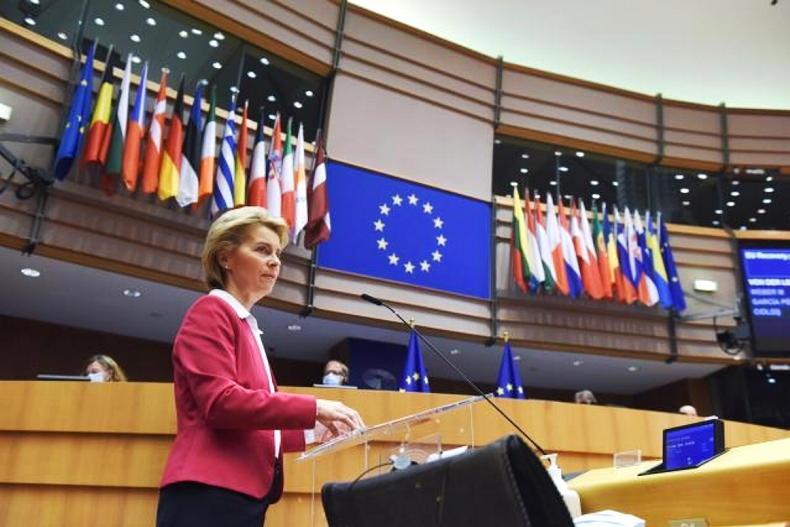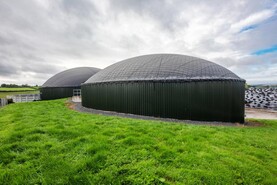EU energy policy is under a period of considerable change, which has been accelerated by the Russian war in Ukraine.
The bloc is set to ramp up renewables, with proposals to further increase the EU’s renewable energy generation target to 45% by 2030.
However, there is also a dramatic shift under way in terms of EU fossil fuel procurement and infrastructure. Currently, the EU imports around 90% of its gas, with Russia supplying 40-45% of those imports, plus 25% of oil and 45% of coal imports.
Under new plans, the European Commission aims to reduce Russian gas imports by two-thirds within a year and completely by the end of the decade.
This will be achieved by developing additional liquefied natural gas (LNG) partnerships, increasing the production of biomethane and accelerating the deployment of renewable hydrogen.
The Commission also intends to present a solar expansion strategy in June, simplify the planning of renewable energy projects by slashing red tape and boost the uptake of electric heat pumps.
EU-US LNG
Last week, the Commission and the United States signed a deal to help reduce Russian LNG imports. Under the agreement, the US will deliver at least 15 billion cubic metres of LNG to EU states by the end of 2022. EU member states will work to ensure demand for 50 billion cubic meters of US LNG until at least 2030.
US natural gas exporters and German gas buyers met this week in Berlin to speed up talks on how the US could supply additional gas to the bloc. Having paused the commissioning of the Nord Stream 2 pipeline, Germany has already committed to building at least two new LNG terminals.
Irish LNG terminal
The decision by An Bord Pleanála on whether to grant planning permission for the controversial LNG terminal beside the Shannon estuary has been put back until 9 September.
The official stance of the Government is to oppose the development of all LNG infrastructure in Ireland but there have been growing calls to reverse this in light of the ongoing energy crisis.
Ireland sources much of its gas from UK supplies and the remainder from the Corrib gas field, which is set to deplete over the coming years.
This week the National Competitiveness and Productivity Council stated that Ireland is acutely exposed to cost increases and energy supply challenges.
Ireland’s energy import dependency was 71% in 2020, the eighth highest in the EU and above the EU average of 57%.






 This is a subscriber-only article
This is a subscriber-only article










SHARING OPTIONS: